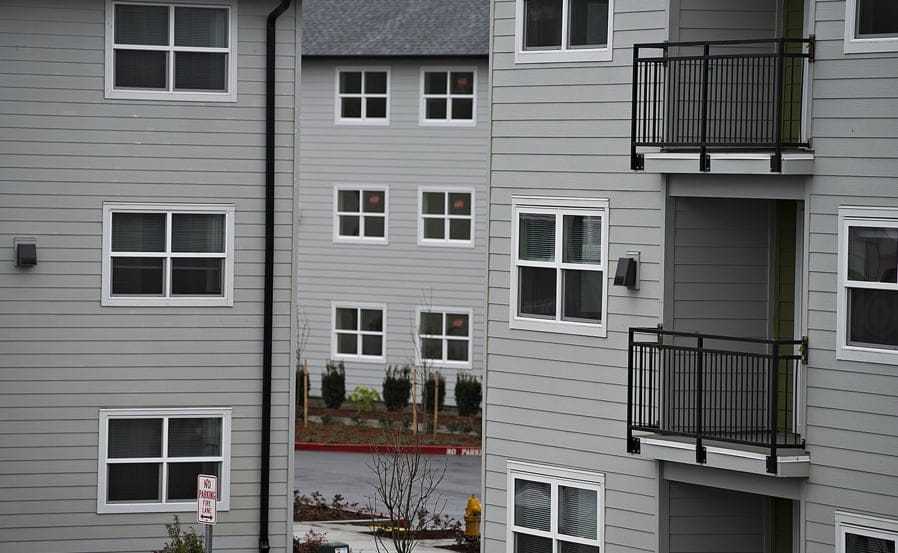The amount of money renters must earn to afford a place to live in Clark County continues to rise, according to the National Low Income Housing Coalition’s annual Out of Reach report.
A renter needs to earn a full-time, hourly wage of $22.92 or annual salary of $47,680 to afford a studio apartment, estimated to cost $1,192, according to the report released this week. For a one-bedroom apartment, the price of affordability rises to $24.79 hourly or $51,560 annually. In this case, affordable means renters don’t spend more than 30 percent of their income on rent.
“That figure is basically recognizing there are other costs that households need to cover as part of their overall income,” said Kate Budd, executive director of the local Council for the Homeless and board member at the Washington Low Income Housing Alliance, which helped release the report.
Other costs include food, transportation, student loans and leisure.
As the cost of housing continues to rise, Budd said units become less accessible to people with lower incomes, such as those living off $823 in monthly Social Security payments or veteran’s benefits. The report says a minimum wage earner would need to work 68 hours weekly at $13.50 hourly to afford a studio apartment in Clark County. Youth and seniors often struggle the most in affording rent because they have the lowest incomes.




